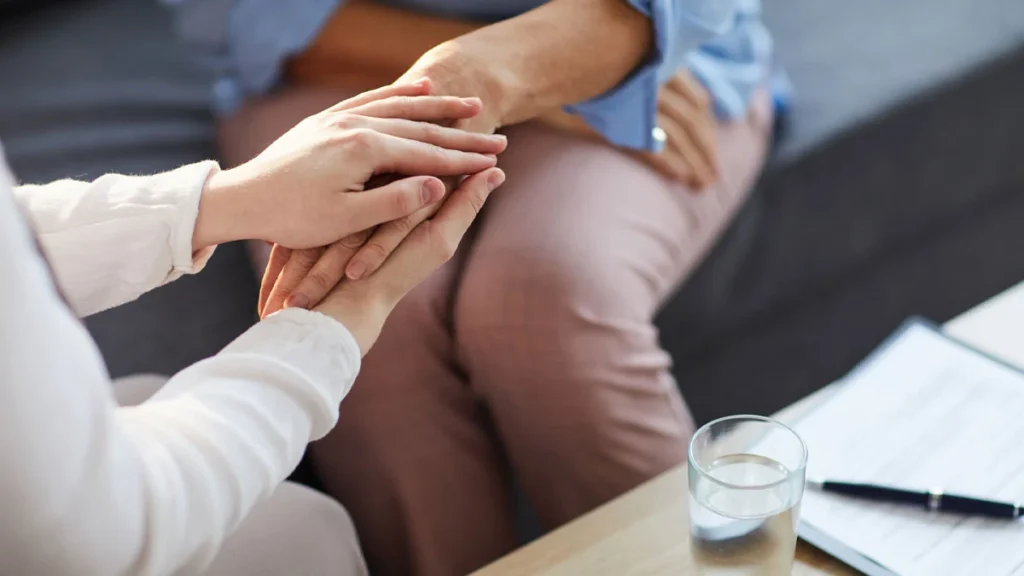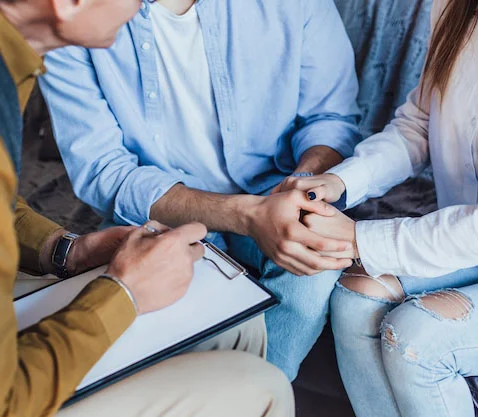
Learn about Different Types of Counseling – Psychologist
If you or a loved one is struggling with mental health, relationship, or personal issues, counseling can be an incredibly helpful tool. But with so many different Types of Counseling and therapy approaches out there, it can be confusing to know which option might be the best fit. In this blog post, we’ll explore some of the most common types of counseling to help you better understand the different methods and determine which might work for your specific needs.
Table of Contents
ToggleTypes of Counseling
Psychotherapy/Talk Therapy
Psychotherapy or talk therapy is one of the most well-known and widely practiced forms of counseling. In psychotherapy, the patient meets one-on-one with the therapist to discuss thoughts, feelings, behaviors, and life experiences. The goal is to gain insight into problems or concerns and develop positive coping strategies. There are numerous kinds of psychotherapeutic approaches, such as cognitive behavioral therapy (CBT), psychodynamic therapy, humanistic therapy, and more.
Family Counseling
Family counseling brings together all members of a family to address issues disrupting relationships and functionality. Typical goals are improving communication, repairing rifts and resentments, learning effective parenting skills, navigating family transitions like divorce, and managing conflicts between parents and children or siblings. Family counselors act as mediators, offering tools to strengthen familial bonds.
Marriage/Couples Counseling
As the name implies, marriage/couples counseling helps partners work through relationship struggles and improve their marriage or long-term partnership. A counselor provides a neutral space for couples to openly communicate, identify conflicts, rebuild trust and intimacy, and learn healthy ways to resolve disagreements. If a breakup seems imminent, counseling explores whether the relationship can be repaired or guides the split in an amicable direction.

Group Counseling
In group counseling, one or more therapists lead a small group of individuals facing similar challenges or concerns, such as substance abuse, eating disorders, anger management needs, grief counseling, etc. Participants give and receive support, share experiences, and learn coping techniques from the counselor and each other in a judgement-free environment. Group counseling fosters a sense of community and mutual understanding.
Child/Adolescent Counseling
Therapists who specialize in working with children and teenagers employ special techniques to help them deal with developmental issues, behavioral problems, trauma, family conflicts, social difficulties, mental health conditions, and other childhood challenges.
Play therapy and art therapy are often incorporated into child counseling sessions. For teens, counseling addresses issues like academic stress, bullying, self-esteem struggles, and relationship troubles.
Trauma/PTSD Counseling
Those who have experienced terrifying, life-threatening events like violence, abuse, combat, natural disasters, or other traumatic incidents may develop post-traumatic stress disorder (PTSD). Trauma counselors use specific therapies like cognitive processing therapy and prolonged exposure therapy to help PTSD sufferers process the traumatic memories, overcome fears and anxieties, and manage distressing thoughts and emotions.
Addiction/Substance Abuse Counseling
Addiction counseling is imperative for individuals battling alcohol or drug abuse problems. Counselors employ behavioral therapies like motivational interviewing, contingency management, and cognitive behavioral therapy to address the root psychological causes behind addictive behaviors. Counseling also equips clients with relapse prevention strategies, life skills training, and connections to peer support groups.
Conclusion
There are many different types of counseling, each with their own unique philosophy, techniques, and intended goals. Whether you seek counseling for relationship issues, mental health concerns, personal growth, or any other reason, scheduling appointment at Hale Clinics is recommended, which has the Best Psychologist in Chandigarh. Their skilled professionals will provide the guidance and support to help you tackle this tough situation effectively.
FAQs
Q1. What is the main difference between psychotherapy and counseling?
Ans. While the terms are sometimes used interchangeably, psychotherapy (or talk therapy) typically refers to an in-depth, long-term exploration of the patient’s thoughts, feelings, and behaviors, while counseling is often more short-term and focused on specific issues or goals.
Q2. How does marriage/couples counseling work?
Ans. In marriage/couples counseling, a therapist provides a neutral space for partners to openly communicate, identify conflicts, rebuild trust and intimacy, and learn healthy ways to resolve disagreements.
Q3. What is the benefit of group counseling?
Ans. Group counseling allows individuals facing similar challenges to share experiences, give and receive support, and learn coping techniques from the counselor and each other.
Q4. Why is play therapy used in child counseling?
Ans. Play therapy uses toys, games, and other activities to help children express their thoughts and feelings in a natural, non-threatening way. It allows counselors to gain insights into a child’s issues and teach coping strategies through play.
Q5. What types of therapies are used for PTSD?
Ans. Trauma counselors often use therapies like cognitive processing therapy and prolonged exposure therapy to help PTSD sufferers process traumatic memories, overcome fears and anxieties, and manage distressing thoughts and emotions related to their trauma.
